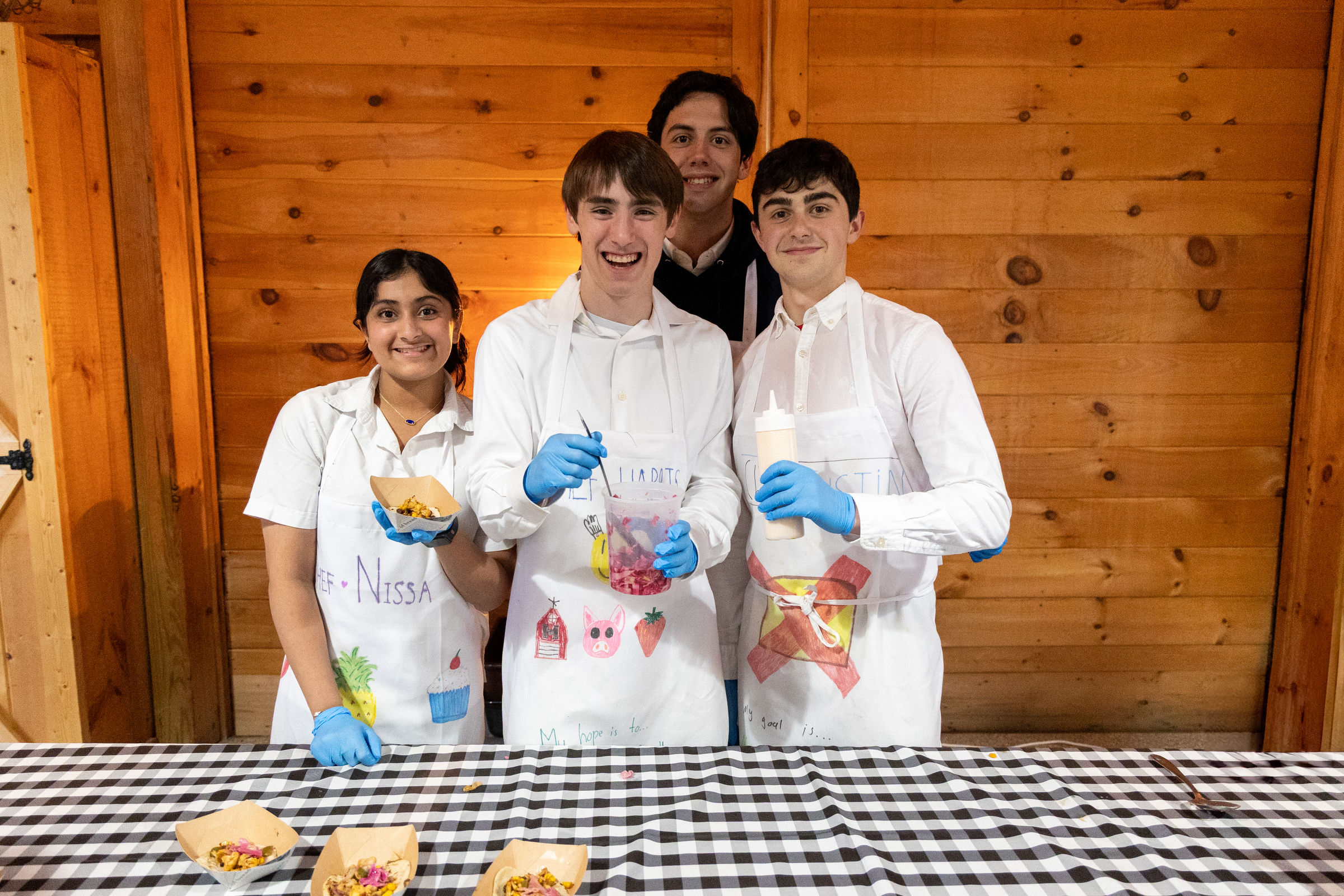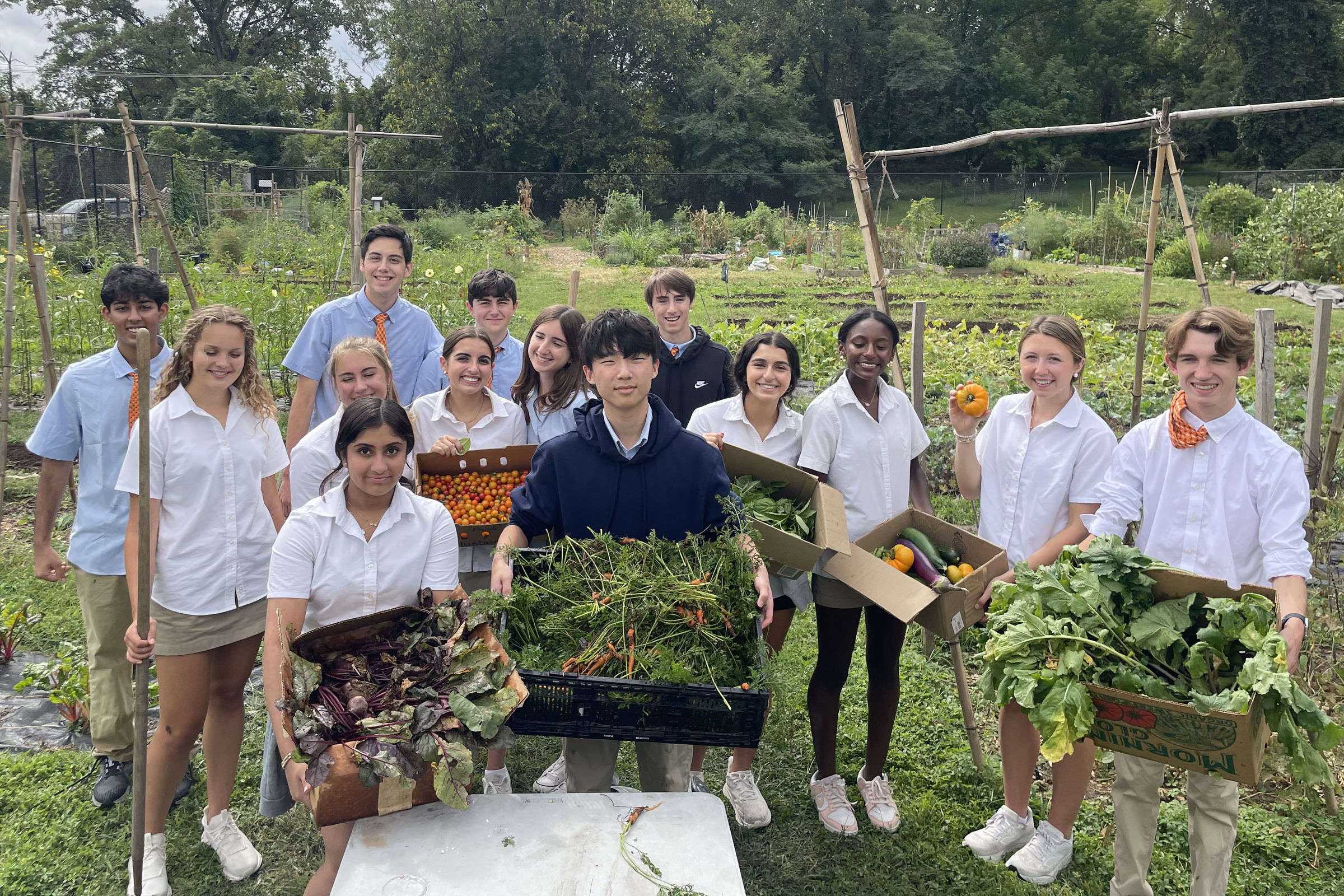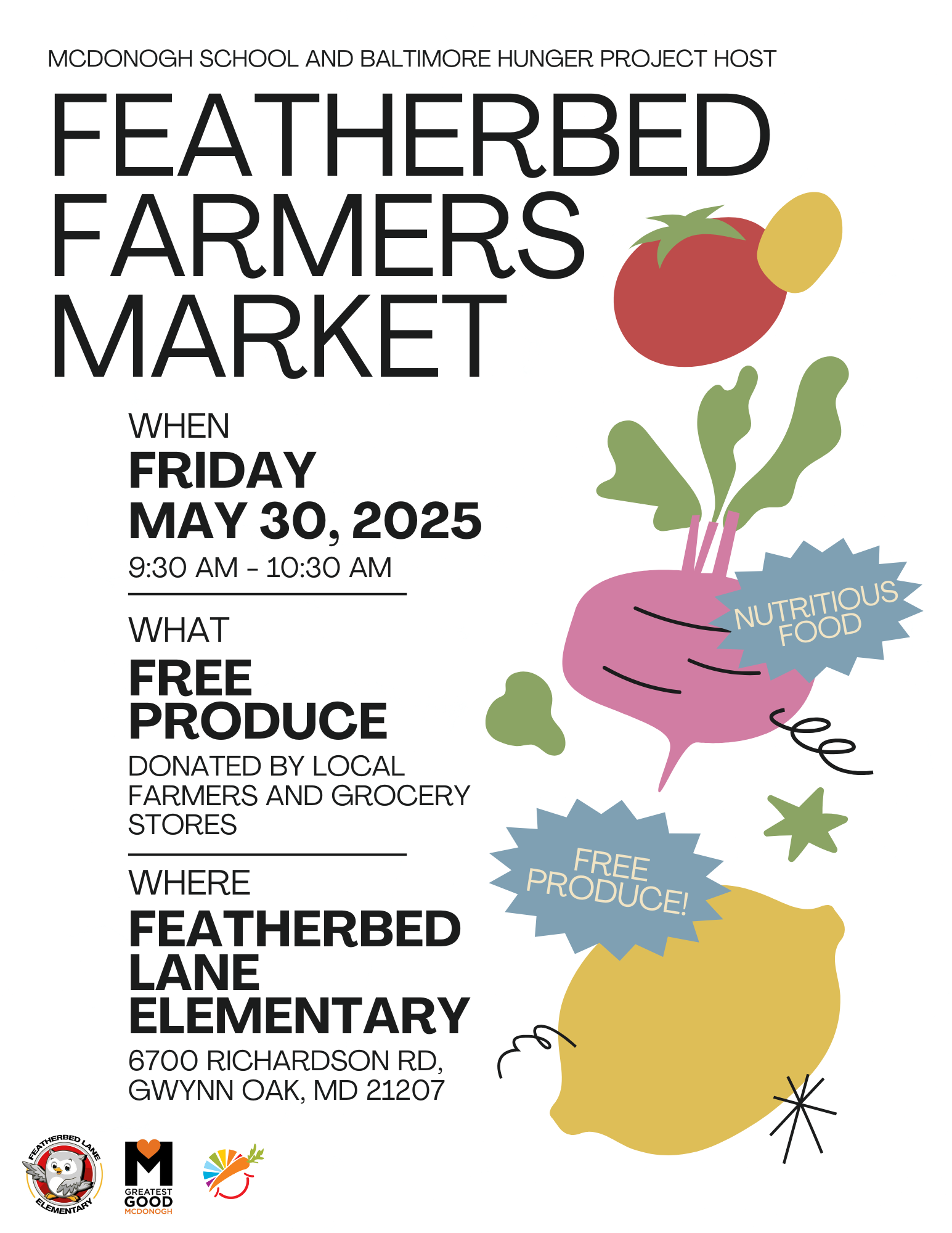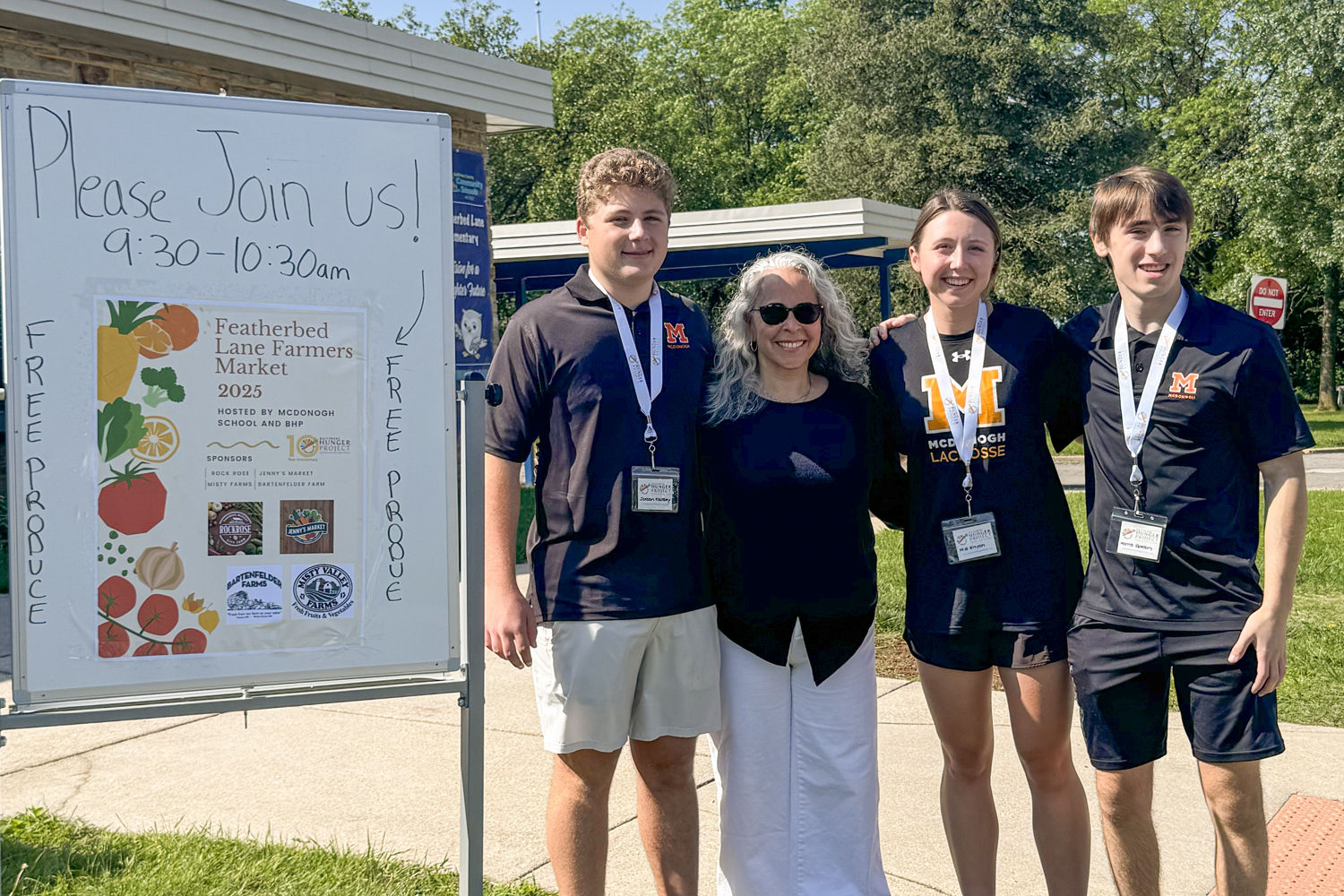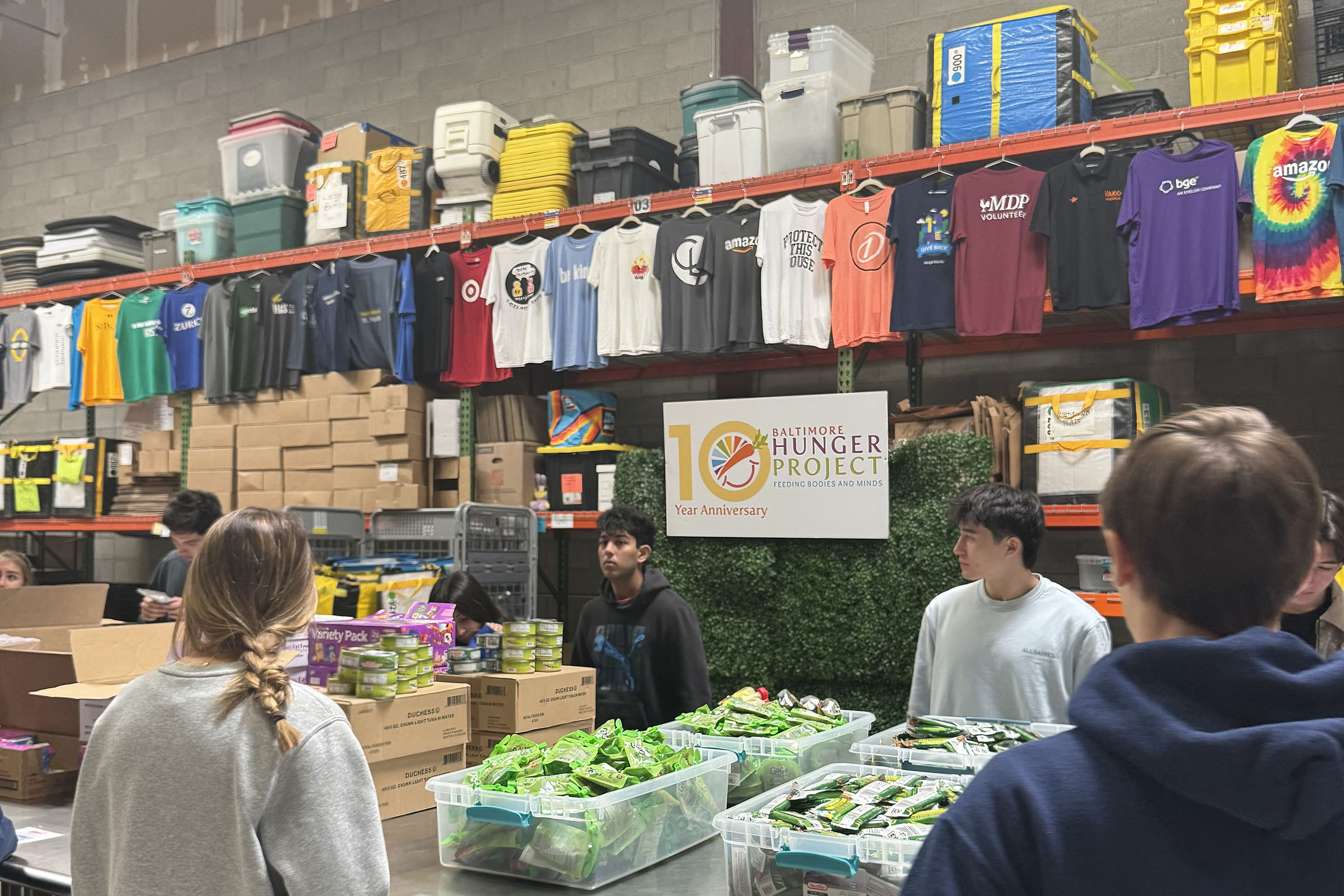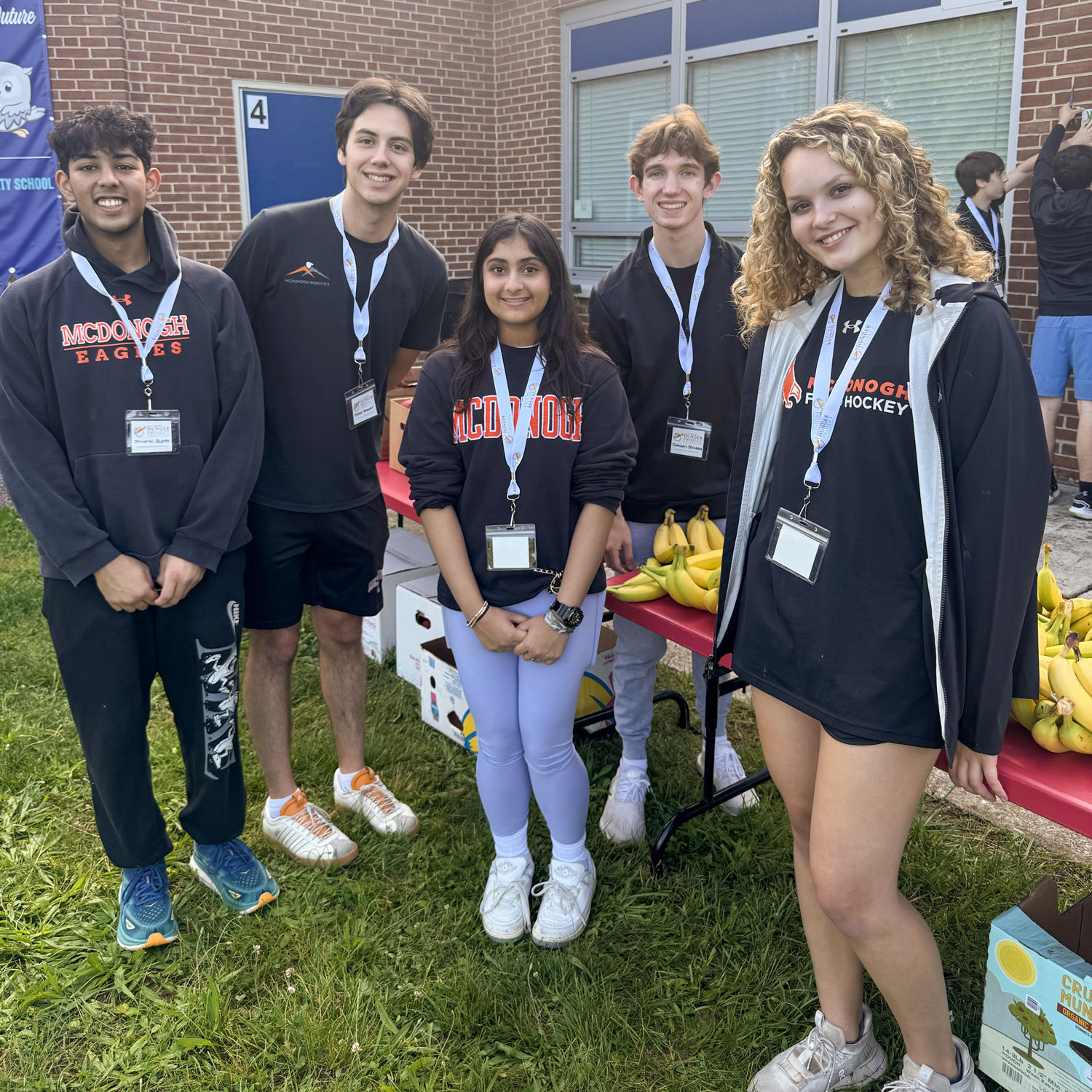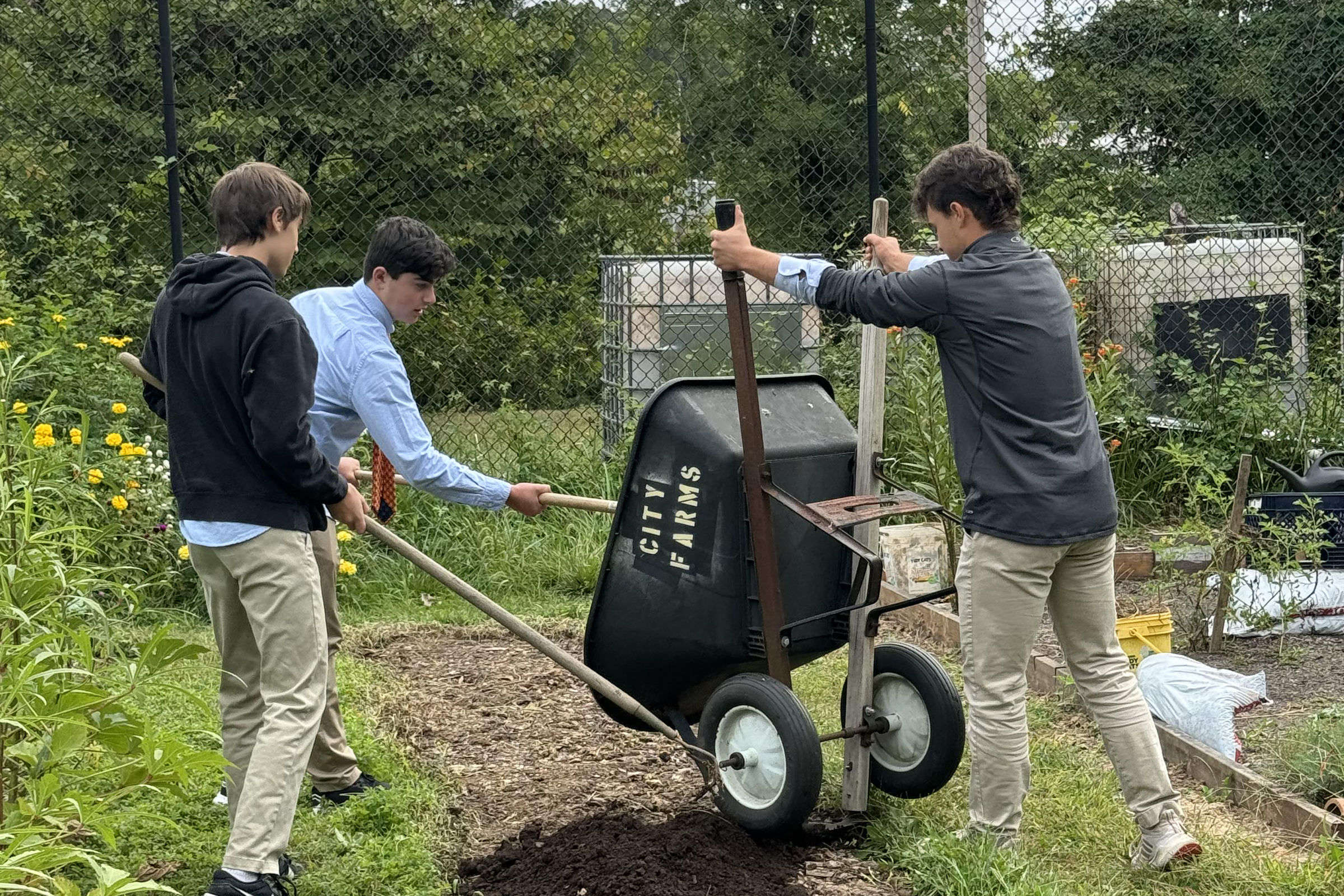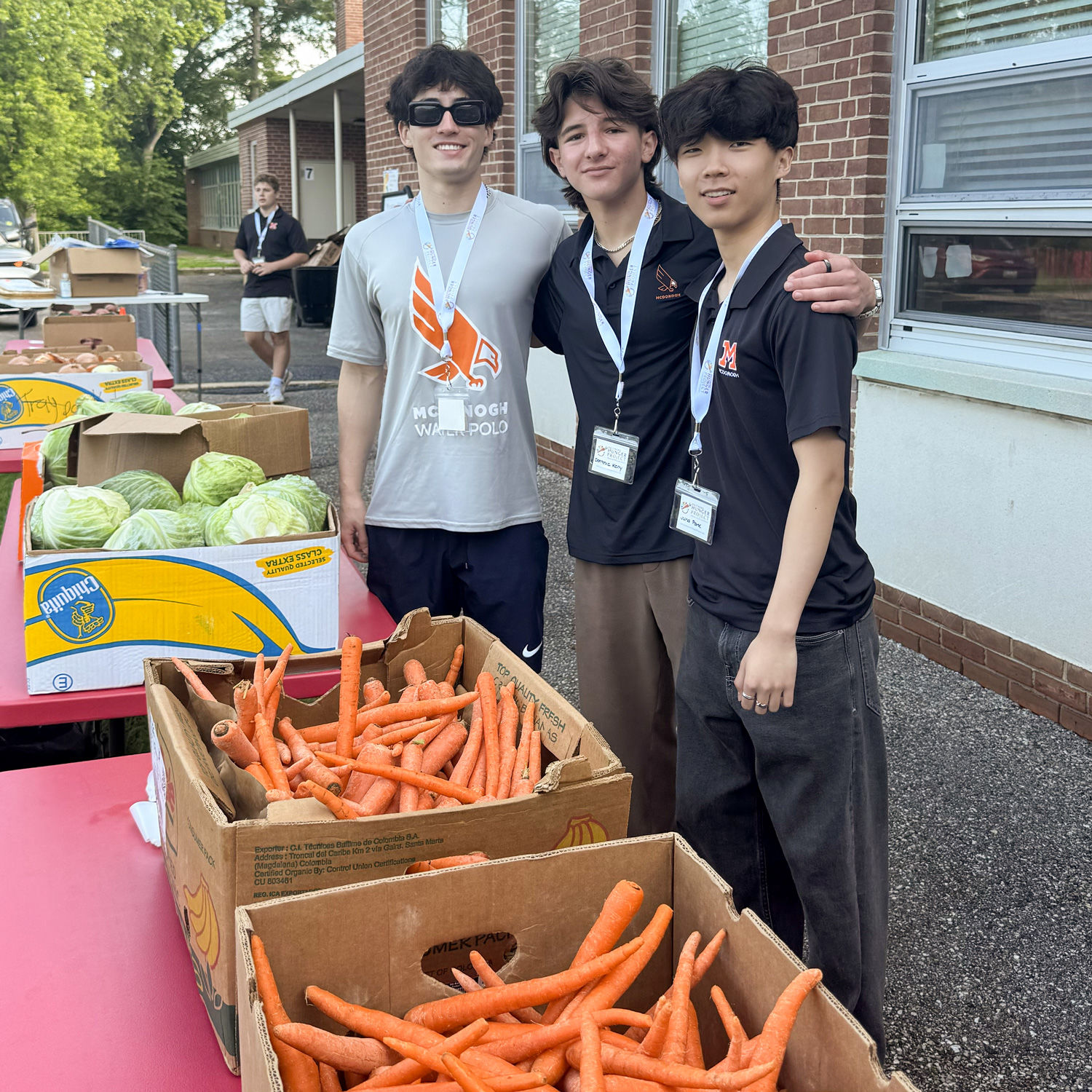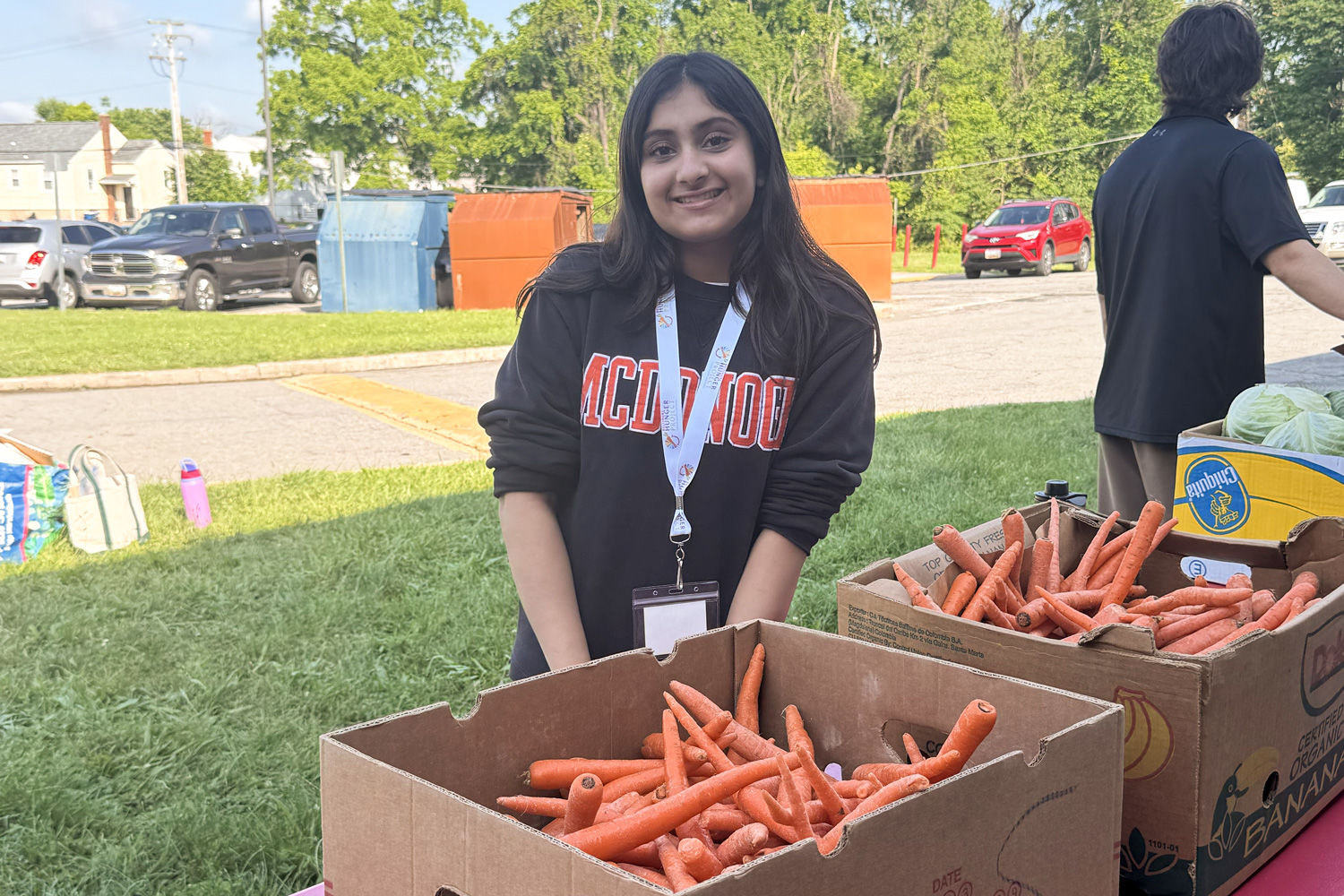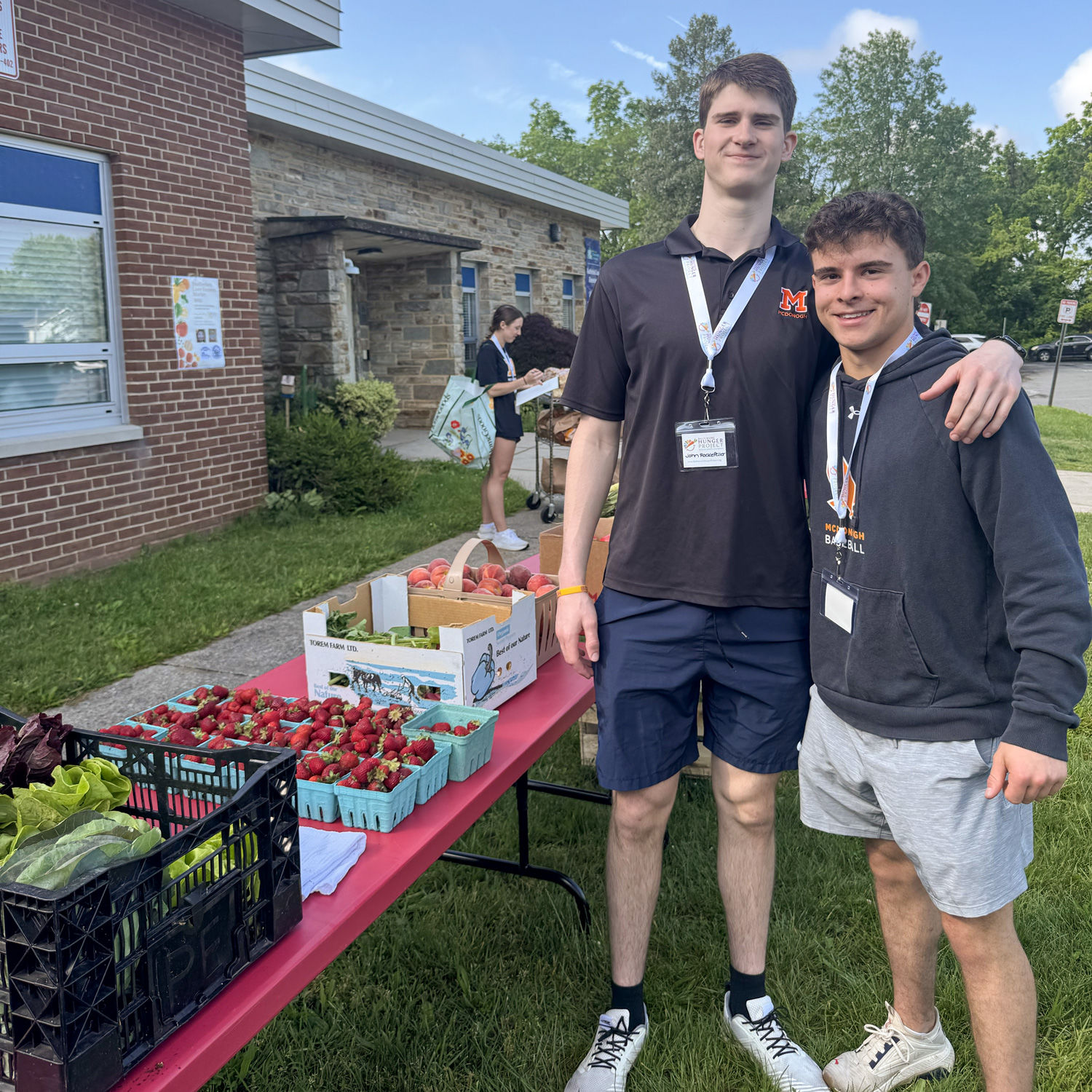
Register
Parents
Parents of current McDonogh students may sign up for website accounts. Signing up for an account allows a parent to access the online directory, DASH, and your customized parent Personal Page.
Alumni
Alumni can create an account in order to take advantage of McDonogh Connect or Pledgemail.
Login
Food Studies Course Addresses Food Insecurity
Idea
Course or Project
Advanced English III: Nonfiction Studies in Food Culture and Systems
Overview
Students explored the power of food in literature, culture, and community while studying food insecurity in Baltimore. Partnering with the Rock Rose Food Justice Project and Baltimore Hunger Project (BHP), they examined systemic causes of hunger and designed solutions to increase access to fresh produce. In a culminating project, the students designed and executed a prototype farmers' market, a collaboration between both nonprofits, to address the need for fresh produce in the community.
Implementation
Who We Served
- Rock Rose Food Justice Project: Urban garden providing produce to local food pantries and soup kitchens.
- Baltimore Hunger Project: Nonprofit delivering weekend food bags to children in need. Students ultimately focused their final project on creating a prototype farmers' market to serve families at Featherbed Lane Elementary School, one of BHP's partner schools.
The Challenge
While BHP's weekend food bags provided shelf-stable food, families lacked access to fresh produce. McDonogh students aimed to close that gap by making fruits and vegetables more accessible to the children BHP serves.
What We Learned
- Cultivate Purpose: Recognized food as a basic human right and took ownership of addressing food insecurity.
- Develop Empathy: Volunteered at Rock Rose and BHP, gaining firsthand insight into the people behind the issue.
- Understand Systems: Researched local and global causes of hunger, interviewed nonprofit leaders, and identified systemic barriers.
- Build Advocacy: Presented solutions in a "shark tank" pitch to community leaders; the winning idea became the class project.
- Inspire Innovation: Designed and launched a pilot farmers' market to deliver fresh produce directly to families.
Impact
- On the Organization: BHP gained a tested, student-designed farmers' market model with sourcing partnerships, marketing materials, and an implementation plan. The pilot's success, with all the produce distributed within 25 minutes, proved its viability for future use.
- On Students: Students experienced the power of turning ideas into action, developed empathy and advocacy skills, and gained real-world experience managing partnerships, logistics, and community impact. Teachers observed marked growth in collaboration, critical thinking, and leadership.
